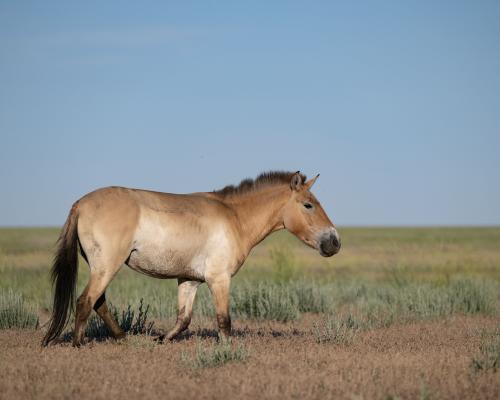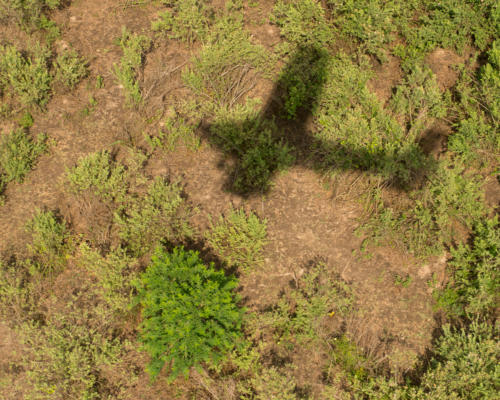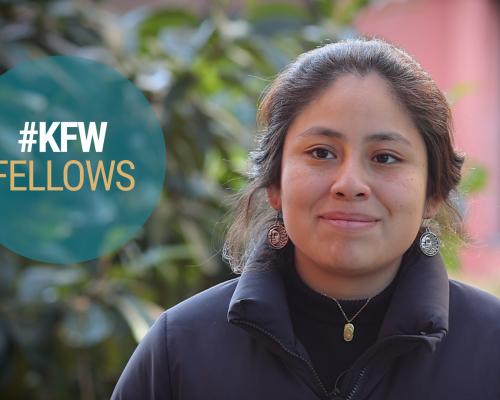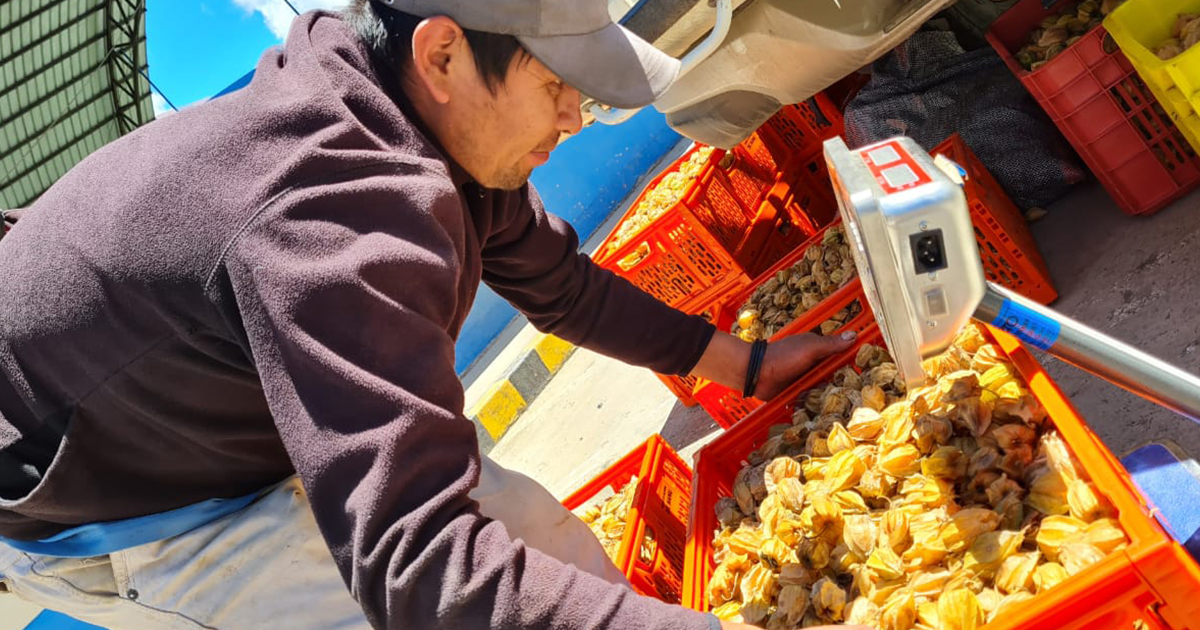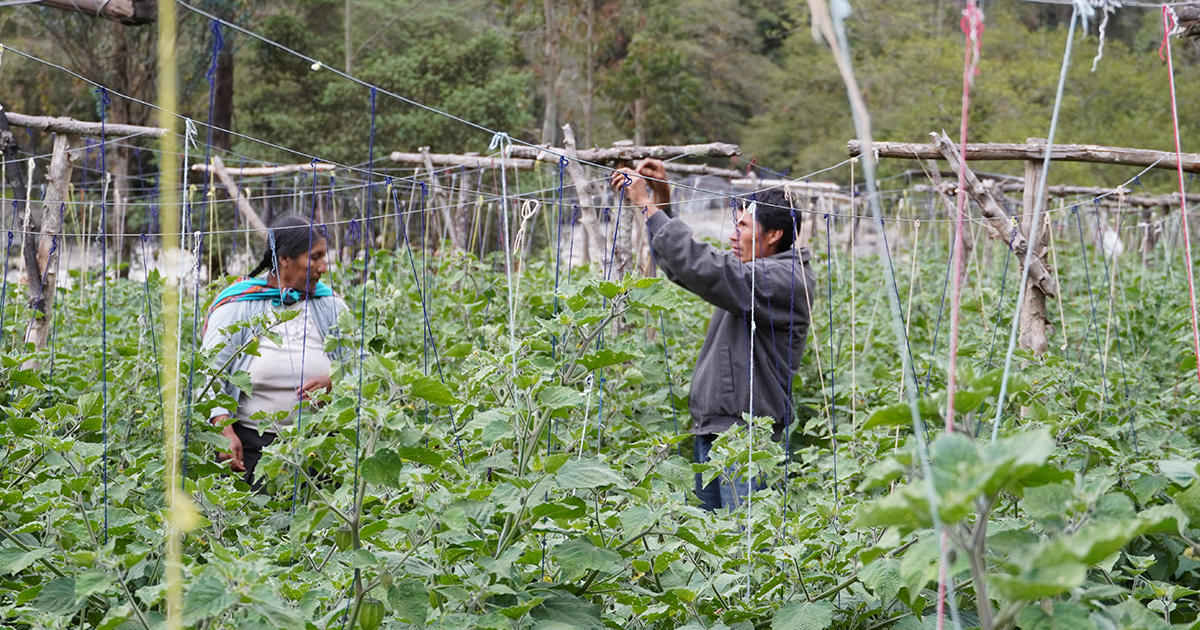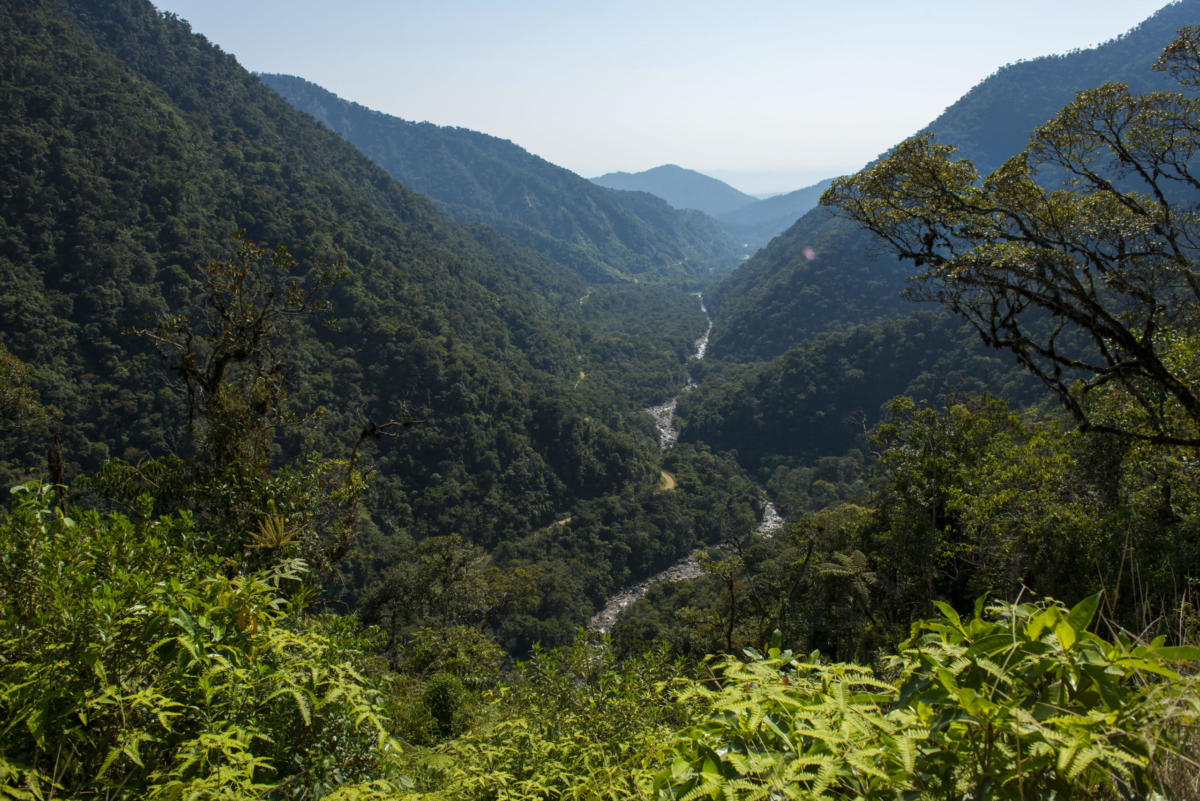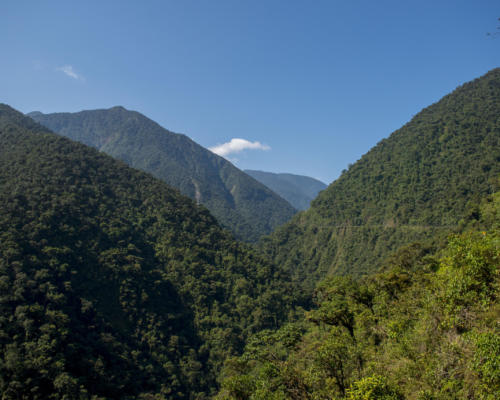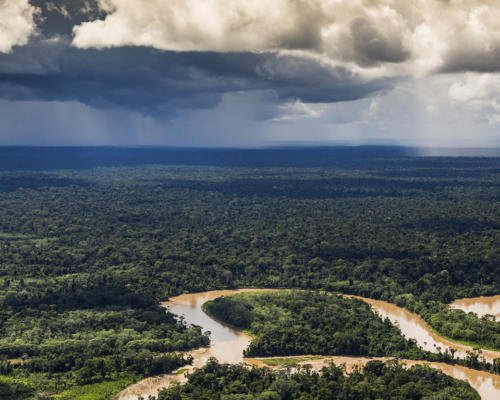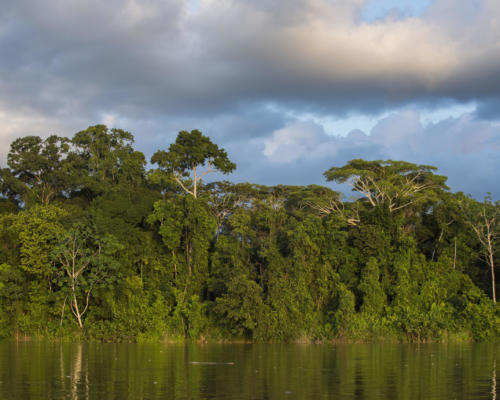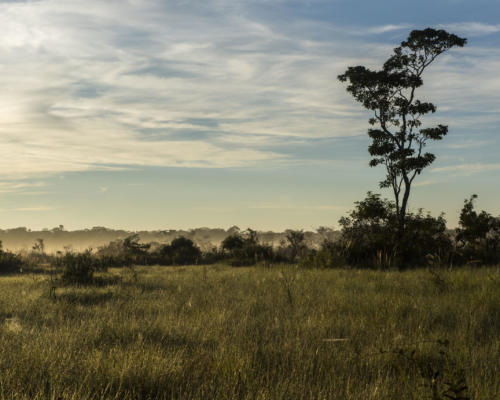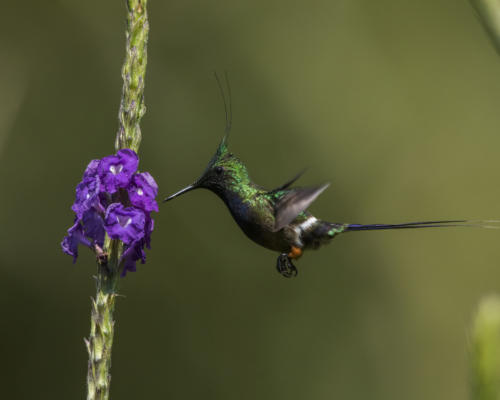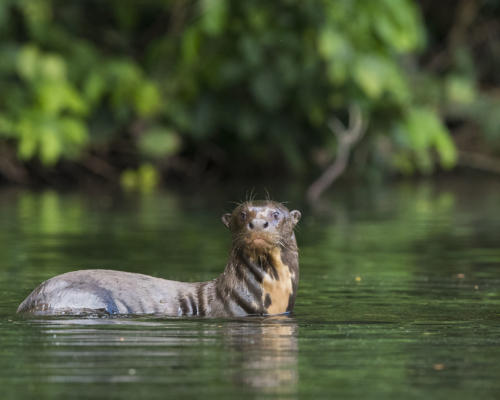The Peruvian President, Francisco Sagasti, accompanied by the Minister of Environment, Gabriel Quijandría, and a large delegation visited the Manu Biosphere Reserve to seal a conservation agreement between the communities, the state, and a private enterprise.
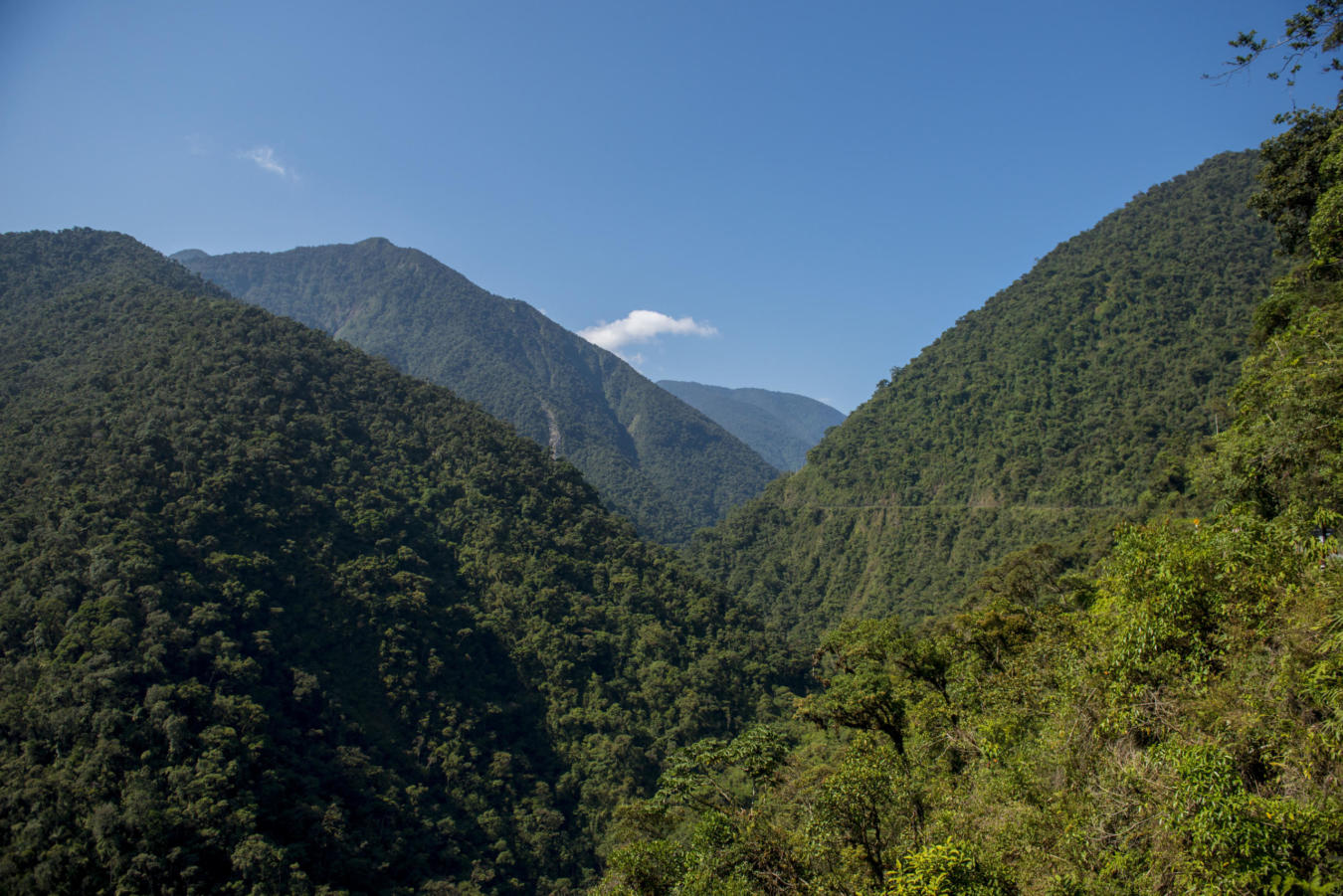
Peruvian president visits Manu Biosphere to sign conservation agreement
April 29, 2021. Manu National Park is one of the most biodiverse areas in the world, declared a World Heritage Site and the heart of the Manu Biosphere Reserve, but it is under pressure due to deforestation. For this reason, it is important to generate alliances aimed at forest conservation and boosting economic opportunities in surrounding communities. Under this premise, the ProBosque Manu (BMU) project began in 2013 and was implemented by FZS Peru in the Mapacho Valley.
On the 29th of April, the President of Peru, Francisco Sagasti, accompanied by the Minister of Environment, Gabriel Quijandría, the Minister of Foreign Trade and Tourism, Claudia Cornejo, the Ambassadors of Germany, Stefan Herzberg, and the United Kingdom, Kate Harrison, visited the Manu Biosphere Reserve on Thursday. Together they participated in the signing ceremony for the conservation agreement between the Manu National Park, Amarumayu SAC, and Ukumari Paucartambo agro-exporters association of the Manu Biosphere Reserve.

The ceremony was held in the district of Challabamba, in the province of Paucartambo. The agreement aims to promote work between the state, private enterprise, and communities near Manu National Park, and thus aims to strengthen sustainable income-generating activities that contribute directly to conservation in this Peruvian protected area.
After signing the agreement, the Peruvian president emphasized that “this ceremony represents the government’s commitment to economic reactivation in harmony with environmental conservation and sustainable development”. Gabriel Quijandría, Minister of the Environment, thanked the local communities “for believing in conservation, on betting on sustainable products that are combined with conservation efforts, products that also resolves a conflict that existed with the Andean bear.”
The aim of the conservation agreement is to promote the commercialization of sustainable products from the Manu Biosphere Reserve such as Peruvian groundcherry (Physalis peruviana). A flagship crop, being grown in Manu’s communities, that has contributed to the conservation of the Reserve for the past eight years.
Groundcherry production began in 2013 through a collaborative effort between the farmers of the Mapacho Valley, Manu National Park, partners such as FZS Peru, and cooperating partners such as the German government. It was started so that better co-existence between the Andean bear and farmers could develop. With ongoing support, groundcherry farmers’ associations were formed, technical assistance and training were provided and, after some time this Andean fruit became an alternative crop, profitable for the communities and a great initiative to conserve Manu National Park and the fauna within.
Hauke Hoops director of FZS Peru considers it fundamental to give continuity to these long-term sustainable initiatives. “We will continue to support the conservation of the biodiversity of the Manu Biosphere Reserve through nature-based initiatives such as this productive groundcherry enterprise, thanks to the key support of cooperating partners such as the International Climate Initiative (IKI) of the German Ministry of the Environment without whom we would not be celebrating today”.
This agreement will benefit 51 families in the Mapacho Valley by promoting the commercial sale of fruits to secure buyers from around 30,000 Peruvian groundcherry plants in the buffer zone of the National Parks. Additionally, in the contract, communities agree to fight forest fires in the surrounding area encompassing 1,302 hectares through a voluntary fire brigade.
The first concrete action of this signed conservation agreement resulted in the delivery of five tons of Andean fruit to the city of Lima. The new strategic partner of the groundcherry producers, the company Amarumayu, will promote the marketing of the fruit at the national level. “We must convince the world that the real value is in the standing forest. How? By valuing the super fruits that exist in this forest,” said the executive director of Communications and Sustainability of the AJE Group, Jorge Lopez-Doriga.
Once the truck was filled with the five tons of fruit and ready for delivery, Ritcher Cardenas, president of the Ukumari Paucartambo agro-exporters association said: “My colleagues and I are proud, we have finished delivering the fruit, now we are selling to a company thanks to much effort and training.” For her part, the farmer Profeta Chucata also said: “Now for the first time we are sending physalis. Hopefully, it will continue like this for the next five years so that we can sell, it would be very good, so I am very happy.”
New opportunities are opening up for the farmers, who have been committed to the conservation of Manu National Park from the beginning. Now their products will go from local markets in Cusco to national markets with the possibility of going out internationally. The Peruvian groundcherry from the Manu Biosphere Reserve will carry a quality product that respects the environment where it is produced and the history of conservation that connects the communities with the resources provided by Manu National Park.






